Like any good story, a superhero adventure has its roots in mythology, mixed with contemporary, relevant insights. In other words: history blended with science. So, it’s no surprise that historian Etienne F. Augé and scientist Barry W. Fitzgerald discovered that their shared enthusiasm for superhero films sparked intriguing conversations. And, as befits interested scientific minds, publication inevitably followed. Enter the book Superheroes, where the historian and the scientist debate one of the most popular genres of the moment: the superhero. Read on in our Superheroes review to discover the insights it unveils!
Extra: check out Jeroen’s earlier interviews with Etienne F. Augé on science fiction and Barry W. Fitzgerald on the science behind Iron Man’s armor.
In the beginning at Erasmus University
Barry and Etienne met at an event about superheroes at Erasmus Universiteit Rotterdam. During their panel discussion, there was a clear resonance on the subject, approached with the same infectious enthusiasm from both gentlemen’s respective backgrounds. So much so that the audience thought Etienne and Barry had known each other for years and had been collaborating. While that wasn’t the case, the seed for collaboration was planted. As someone who has interviewed both Etienne and Barry, this isn’t difficult to understand.
Etienne F. Augé is a French historian and writer who has been living in the Netherlands since 2011. He works at Erasmus University, teaching international and strategic communication, diplomacy, film and science fiction. Irishman Barry W. Fitzgerald is known as the “superhero scientist” and is a writer and podcaster. He works as a science communicator at TU Eindhoven, as well as having a position at University College Dublin in Ireland and running his own science communication business BW Science. Despite significant differences between the two gentlemen, there’s a commonality that made the Superheroes book possible: an infectious scientific interest in superheroes.
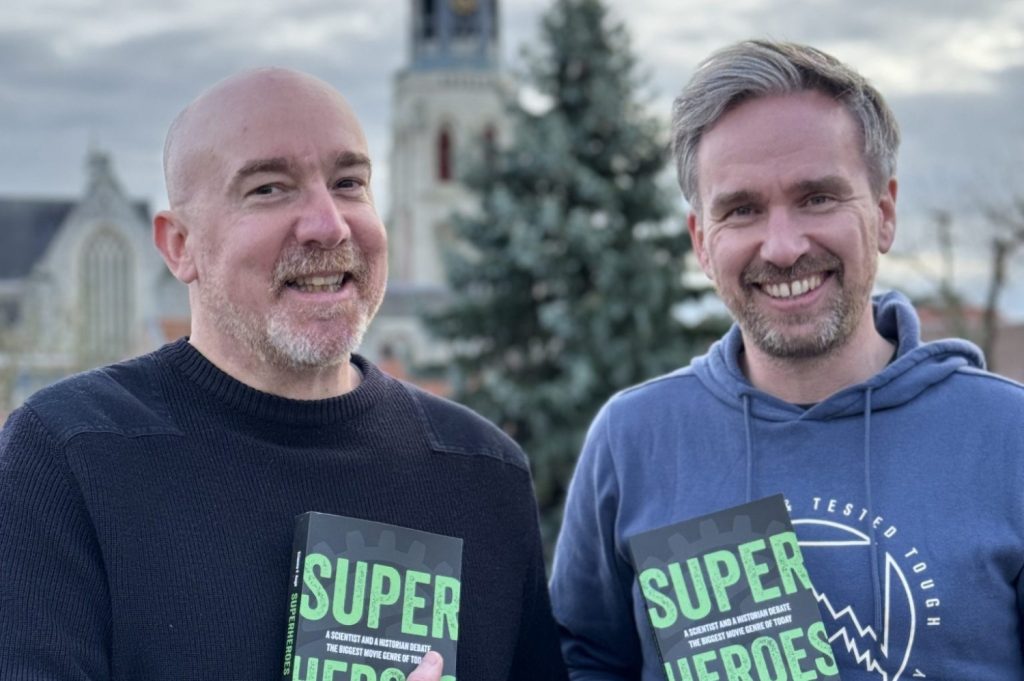
Superheroes review – What is a superhero?
In Superheroes, both scholars address various questions such as “when does a hero become a superhero?” and “what is expected of a superhero?”. But also, “why are superheroes so popular?” and “can superheroes exist in reality?” They approach the subject in a scientific manner. First posing a definition of what precisely constitutes a superhero, then attempting to answer the posed questions by addressing various historical and scientific aspects of the superhero.
Alternating between the historian and the scientist, a chapter serves as the introduction for the next chapter. Taking us, for example, through the historical background of the superhero (from the Gilgamesh legend on) and the scientific ethical issues that come into play (such as Tony Stark’s evolution from egocentric arms dealer to the self-sacrificing superhero Iron Man). Although the book’s cover refers to it as a “debate,” the gentlemen explain in the introduction that Superheroes is more of a collaboration. They are both superhero fans, so the book is more of a discussion than a debate presenting different viewpoints.
More insights and perspectives
This approach to writing works well. Both gentlemen keep your attention with their infectious enthusiasm. I’ve been a superhero fan all my life and have been contemplating many of the issues discussed for years. This contemplation isn’t just prompted by the comic books themselves, where the consequences of superpowers and futuristic technology are often depicted, but also by books about the genre. Such as biographies of the British author Alan Moore and recently MCU: The Reign of Marvel Studios, a book about the impact of the world-famous film studio.
It’s always enjoyable to gain more insights and perspectives about the genre from others. Etienne’s knowledge of mythology and Barry’s scientific approach complement each other nicely. This allows them to address the subject from their respective fields of expertise. However, I would have liked to read more about the intermediate stages of the debate. The chapters mainly describe the outcome of the ongoing conversation between both gentlemen; the conclusions leading to answers to the questions posed in the book. Although there are occasional humorous hints of disagreement in the footnotes, we don’t really get a sense of how heated the discussion might have been.
Superheroes review – Not the end of the conversation
Superheroes isn’t the end of the conversation either, rather the beginning. Etienne and Barry plan to collaborate more frequently, keeping the subject alive and complementing it with new insights. That’s entirely feasible because the superhero genre is always evolving. We’re currently in an interesting phase where oversaturation of these stories is a concern. The audience expects more quality than they’re currently getting. The foundation of the superhero, as discussed in this book, suffers in current films and series from excessive CGI action scenes, one-dimensional supervillains and forced plotlines.
Indeed, the foundation from which the superhero emerged, as discussed by Etienne in the book, and the extrapolated scientific breakthroughs discussed by Barry, have made the genre popular again since Iron Man premiered in 2008. These scientific elements and the philosophical convictions of supervillain Thanos culminated in the blockbuster Avengers: Endgame. And while the current multiverse approach is also based on existing scientific theories, they’re likely too abstract to make films like The Flash and Doctor Strange in the Multiverse of Madness as popular as their predecessors. Just as the gods from Eternals demanded a bit too much suspension of disbelief from the audience compared to Thor and his Asgard.
A book for like-minded individuals
The discussion about superheroes is never-ending. Their popularity may wax and wane, reaching highs and lows, but they will always inspire readers and viewers. With Superheroes, Etienne F. Augé and Barry W. Fitzgerald provide a great tool to keep that discussion going. Their insights can also be put to good use at the water cooler or at a party with like-minded individuals.
Barry and Etienne are like-minded in that regard as well. Not just with each other, but also with us. It would be quite interesting to see both gentlemen engage in conversation with someone who isn’t a fan of superheroes, or at least doesn’t endorse their modus operandi. That could lead to an intriguing debate about the darker side of the superhero. With superpowers and technology more advanced than most, you quickly find yourself in a “might makes right” scenario. The book certainly touches on this subject, but I would like to see it explored further in a follow-up to Superheroes.
Superheroes review – Dive deeper into the superhero
But for now, the book is a must-read for anyone who, after watching films and series about men and women with capes and gleaming battle armor, enjoys delving deeper into the genre. Especially if you’ve become a fan of the superhero genre through the stories of Marvel Studios, the DC Cinematic Universe and the series on platforms like Netflix and Prime Video. Superheroes will help you ponder more deeply about the superhero phenomenon.
And if, like me, you’ve been reading comics your whole life, the book is a nice refresher with a concise summary of the superhero’s basics. You’ll certainly find new insights because Etienne draws on historical facts that you might not know and Barry does the same from the perspective of science with current and modern technology. Thus, the gentlemen complement each other perfectly. Maybe not as Batman and Robin (let’s not argue about who’s who), but certainly as “world’s finest”: Superman and Batman. Or Steve Rogers and Tony Stark. Although those hero duos have often found themselves at odds with each other. But that only makes it more interesting!
Title: Superheroes
Authors: Etienne F. Augé en Barry W. Fitzgerald
Publisher: Bot uitgevers
ISBN: 978-90-830-6964-7
Modern Myths Shop
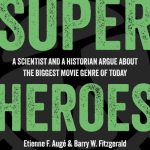
Bol.com – Superheroes – € 14,99
Amazon.nl – Superheroes – € 28,12

Bol.com eBook – Superheroes – not available
Amazon.nl Kindle – Superheroes – € 9,99
Read more Modern Myths reviews!
Superheroes review: © 2024-2024 Modern Myths



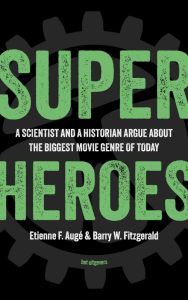





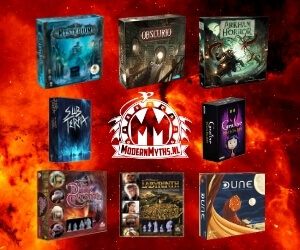

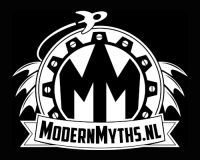
Reactie plaatsen